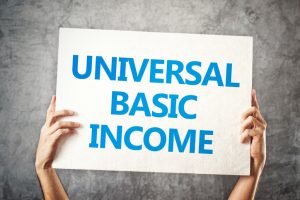What Weimar Germany Teaches us about Universal Basic Income
The comments below are an edited and abridged synopsis of an article by Zilvinas Silenas
Massive government debt; sectors of the economy frozen; much of the population unemployed; government handouts; calls for more handouts. This is a pretty accurate description of any western country’s current state.

Giving people money ‘just because’ is essentially Universal Basic Income (UBI). If the one-time payments turned into monthly payments, at some point the discussion is about UBI, and not extraordinary measures.
UBI may stimulate the economy: People receive it, and spend it on hot dogs, the owner of the hot dog stand then has money to visit a barber, the barber will then have money to buy hot dogs.
But that money has to come from somewhere. Giving Americans $2,000 each would inject $8 trillion into the economy, but if you increase taxes to raise that $8 trillion, you withdraw money from the economy. It’s redistribution, not stimulus.
Financing UBI by borrowing is another option, but borrowing is essentially using tomorrow’s resources to finance today’s consumption. Consuming more today at tomorrow’s expense saddles future taxpayers with debt.
You can print money and hand it out. But some countries have tried that: Zimbabwe, Venezuela, Germany. Economic welfare is not how much money you have, but what you can buy with it. If you continue printing money, sooner or later it will lose value.
Some say that inflation is worth it to have everyone employed. But wouldn’t people receive UBI regardless of their employment? Unless there’s a logical explanation backed up with empirics on how giving everyone money—whether you work or not—encourages you to work, it is merely wishful thinking.
UBI is not a miracle. It can sever the link between effort and reward. If you worry about people asking to be fired because living on temporary benefits is better than working, what will happen when we start handing out money to everyone forever?

